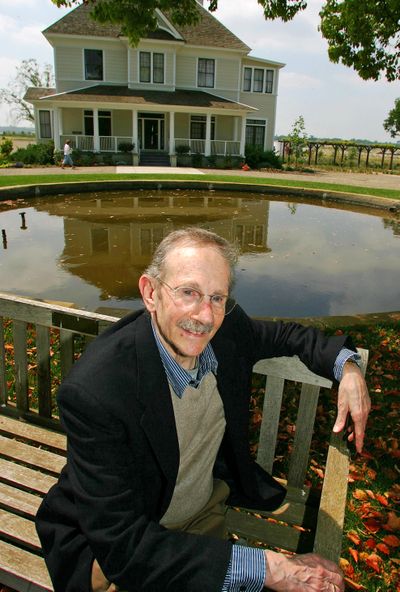Much-honored American poet laureate Philip Levine dies at 87

FRESNO, Calif. – Philip Levine, a Pulitzer Prize-winning poet whose intimate portraits of blue-collar life were grounded in personal experience and political conscience, died Saturday. Levine was 87.
Levine, the country’s poet laureate in 2011-12, died at his home in Fresno, California, of pancreatic and liver cancer, his wife said Sunday.
A native of Detroit and son of Russian Jewish immigrants, Levine was profoundly shaped by his working-class childhood and years spent in jobs ranging from driving a truck to assembling parts at a Chevrolet plant.
Although he taught in several colleges, he had little in common with the academic poets of his time. He was not abstract or insular or digressive. He consciously modeled himself after Walt Whitman as a poet of everyday experience and cosmic wonder, writing tactile, conversational poems about his childhood, living in Spain, marriage and parenting and poetry itself.
“We’ve lost a great presence in American poetry,” said Edward Hirsch, a friend of Levine and president of the Guggenheim Foundation.
Levine captured the ways “ordinary people are extraordinary,” while writing poems that are accessible to readers, Hirsch said Sunday. “They move between the most ordinary diction and high romantic heights.”
Levine loved the earth and sky as much as any poet of nature, but he came to be identified with poems about work and workers, like “Buying and Selling” or “Saturday Sweeping,” in which employees toil under a leaky roof and “blue hesitant light.” In “What Work Is,” the title piece of his celebrated 1991 collection, he offers a grim sketch of standing in line in the rain, hoping for a job:
This is about waiting,
shifting from one foot to another.
Feeling the light rain falling like mist
into your hair, blurring your vision
until you think you see your own brother
ahead of you, maybe ten places.
He was among the country’s most decorated poets, winning the Pulitzer in 1995 for “The Simple Truth” and National Book Awards for the 1979 collection “Ashes” and for “What Work Is.” His other honors included the Ruth Lilly Poetry Prize for lifetime achievement and a National Book Critics Circle Award.